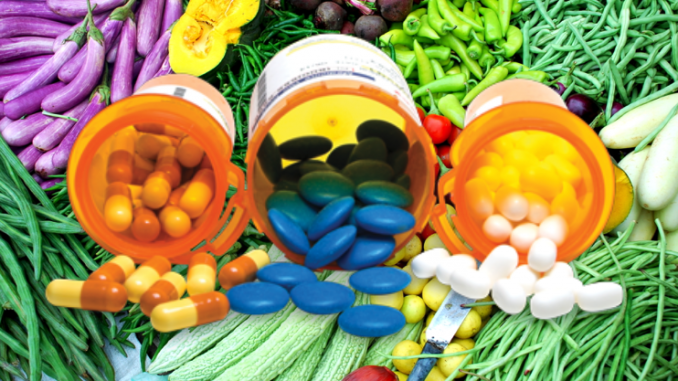
Would you like some anti-epileptic medication with your salad?
As global freshwater supplies continue to shrink, many countries have switched to using treated wastewater (filtered sewage water) for both large-scale and household vegetable growing. However, there is a dark side to this seemingly “green” practice: a recent study suggests that eating vegetables grown using this type of water “boosts urine levels of carbamazepine, an anti-epileptic drug commonly detected in wastewater”. Gross.

BYPASS THE CENSORS
Sign up to get unfiltered news delivered straight to your inbox.
You can unsubscribe any time. By subscribing you agree to our Terms of Use
Latest Video
C&EN reports:
The randomized, controlled study is the first to directly address exposure to such pharmaceutical contaminants in humans, says coauthor Ora Paltiel, a professor of hematology and epidemiology at the Hadassah-Hebrew University. “We were very surprised that the effect was so clear.”
Drugs can enter the water supply by excretion—through the urine of people who take them—or by disposal of unused medicines down the toilet or in the garbage, at home or in healthcare institutions like hospitals and nursing homes. Water disposed of by drug manufacturers can also contain residues of pharmaceutical compounds. Treatment for wastewater used in agriculture generally does not remove these trace chemicals because purifying such a large quantity of water to drinking water standards would be prohibitively expensive, says Benny Chefetz, a professor of soil science at Hebrew University and study coauthor. So drugs can contaminate treated wastewater and find their way into agricultural use.
The researchers gave 34 healthy volunteers batches of produce, including lettuce, tomatoes, cucumbers, peppers, and other vegetables, to use according to their normal eating habits. For the first week of the study, participants received either vegetables grown on a farm irrigated with reclaimed wastewater or vegetables grown on an organic farm that only used freshwater. For the second week, the reclaimed-water group received freshwater-grown produce, and the freshwater group—because of a produce supply issue—received produce from a supermarket, which likely included a mix of produce grown with freshwater and reclaimed water. Everyone received bottled water from the researchers to drink to control for other sources of water contamination.
The researchers tested participants’ urine for carbamazepine using an especially sensitive liquid-chromatography and mass spectrometry-based technique they developed (Environ. Pollut. 2016,DOI: 10.1016/j.envpol.2016.02.027). At the start of the study, the baseline levels of carbamazepine varied; some volunteers excreted quantifiable concentrations while others didn’t. This remained true for participants after a week of eating produce from the organic farm. But after a week of eating produce grown with reclaimed water, everyone excreted detectable levels of the drug. A week of eating grocery store produce, however, did not cause an increase.
“Empirically, it’s obvious that everyone who is exposed to a seven-day diet of reclaimed water is going to have a quantifiable level of this drug in their urine,” Paltiel says, though the urine levels were very low. “These are nanogram per liter levels—they are four orders of magnitude away from levels of if you were taking the drug.” Still, she says, all the produce they tested was commercially available, and even small exposures—to this drug and others—must be assessed.
“This fits what we’ve all suspected but have not shown experimentally,” says Alistair Boxall, a professor of environmental science at the University of York. Levels detected in urine may be low, but people who eat a lot of produce will be exposed to such contaminants throughout their lifetimes, he adds. “We don’t really know much yet about the effects of low-level but very long-term exposure.”
Exposure levels may be significantly higher in countries where wastewater is not as thoroughly treated before reuse as it is in Israel, Boxall says. India, he notes, has a lot of pharmaceutical manufacturing. “There will be lots of areas where the water is really packed with drugs.”
Paltiel’s group will next test whether children, elderly people, pregnant women, and vegetarians are more exposed, and whether the exposure might carry any health effects. “Reclaimed wastewater can be a partial solution to agricultural problems in semi-arid regions, but we have to be cognizant that there are potential exposures from this” she says.


